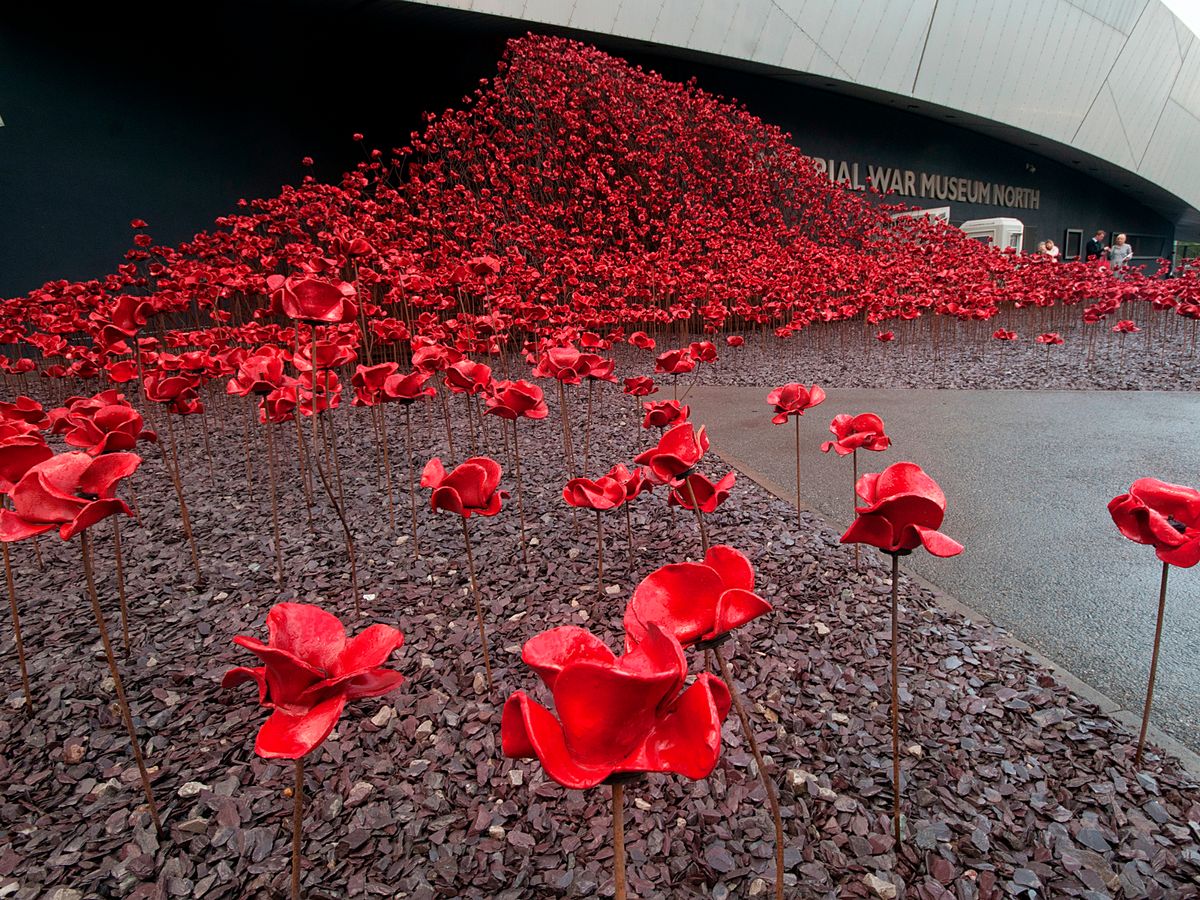 Dear readers,
Dear readers,
It’s that time of the year again: the darkened autumn sky has been set alight by bonfires, kids are throwing live fireworks at locals on the streets of Leeds, and James McClean has tweeted about the poppy. That’s right, Christmas is coming – breathe in and sniff that festive air. In this liminal space between the 5th and 11th of November, the clouds of gunpowder and sparkler smoke have made way for the even cloudier debates surrounding the Remembrance poppy – ‘Poppy Rage’, as some of the more snowflake-y members of our generation may know it.
In recent years, heated arguments concerning the poppy seem to be popping up across every media outlet, comments section, message board – even just during your average late night McDonalds outing. To add my two cents to the discussion, and despite Guy Fawkes being fully out of our systems, I’d like to open up an avenue of discussion by comparing some of the similarities between Bonfire Night and the poppy.
What intrigues me most about these two cultural icons is that they both seem to have evolved to taken on forms and meanings which are distinctly separate from their original history. Remember, people first gathered round piles of flaming wood to burn an effigy of a man who failed to blow up a room full of Tories – and I don’t think too many inhabitants of Hyde Park get out of bed to celebrate this exact same sentiment nowadays (thanks Ellie Montgomery for that lovely and now fully-referenced soundbite).
The poppy is currently undergoing a similar fate. A symbol which, to me, stands for respectfully remembering those who have given their lives in the line of duty, and acknowledging the sacrifices which service men and women make in the name of protecting their family, their friends and their country, has been appropriated into a symbol of British pride and division. The poppy is meant to bring about the end of wars, not to glorify them. As such, the untainted comfort with which I wore the poppy as a child has now been replaced by the crippling guilt I feel when I don’t wear one, and the unexpected shame I feel when I do wear one.
Wherever I go during the first weeks of November, I seem to be hyper-aware of all the unusual places in which I’m starting to find poppies. For context, here’s a list of places I would expect to see a poppy:
– On someone’s chest
– As part of a wreath or war memorial
– In a 19th Century impressionist painting by Claude Monet
In contrast, here’s a list of places I wouldn’t expect to see a poppy:
– On the lead with which you walk your dog
– On the fender of your Range Rover in the middle of April
– On the baggage handler cars at Manchester Piccadilly Train Station
– On top of another poppy
– On somebody’s Facebook profile picture
The poppy’s strength lies in its understated nature of being a subtle but poignant reminder that the person wearing it will take conscientious steps in their life to ensure death on a mass scale will never reoccur. But when it becomes so damn commercialised, when you can purchase poppy earrings, poppy bags and poppy stickers for cars on Amazon, it loses its core value and becomes nothing more than a misappropriated commodity.
In previous years, the issue of The Gryphon published before remembrance Sunday has accompanied The Gryphon logo with a little image of a poppy. Despite looking like the kind of man who bleeds an endless stream of purified poppies every time he shaves his head, my predecessor, Reece Parker, resisted this temptation. As will I. To pop a poppy on the front page would not be an act of remembrance, it would be an attempt to capitalise on people’s emotions to encourage them to pick up a copy.
Wherever you stand when it comes to the poppy, it’s clear that it is an incredibly emotional issue, and no amount of political logic or dogmatic rhetoric is going to outmanoeuvre the deep and personal connection people feel towards honouring or remembering the dead. And at the end of the day, we need to respect other people’s opinions, and know that whether they wear a poppy or not is not an indication of ignorance, nor an indication of how much someone ‘loves’ their country.
Put simply, the appeal of the poppy is about learning from and avoiding the mistakes of the past. Remember, during the two minutes of silence which will occur this Sunday, 57,000 bullets will be manufactured, 30 new firearms will come off the production line, and 1.3 people will die as a result of armed conflict. It’s stats like these which we should also be contemplating when remembering the fallen on Sunday.
I’m going to spend this weekend remembering fallen service men and women in my own time, and playing with my brother’s new Dalmatian puppy who is, quite ironically, called Poppy. Whether I will be wearing a poppy will be a decision that I do not expect anybody else to be involved in.
Whatever you choose to wear on the 11th hour of the 11th day of the 11th month, 100 years after the end of the First World War, make sure you’re wearing it for the right reasons.
Stay classy,
Robbie Cairns
Editor-in-Chief
editor@thegryphon.co.uk
09/11/18
Image: [Manchester Evening News]

